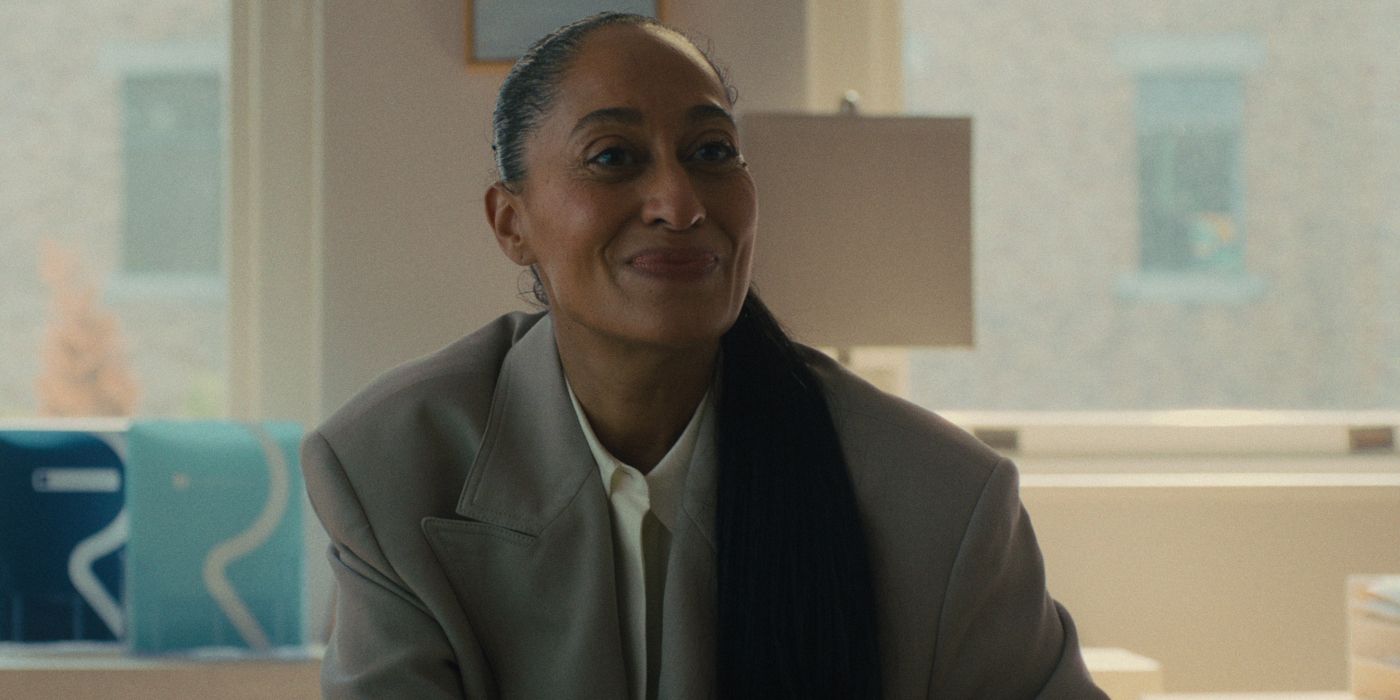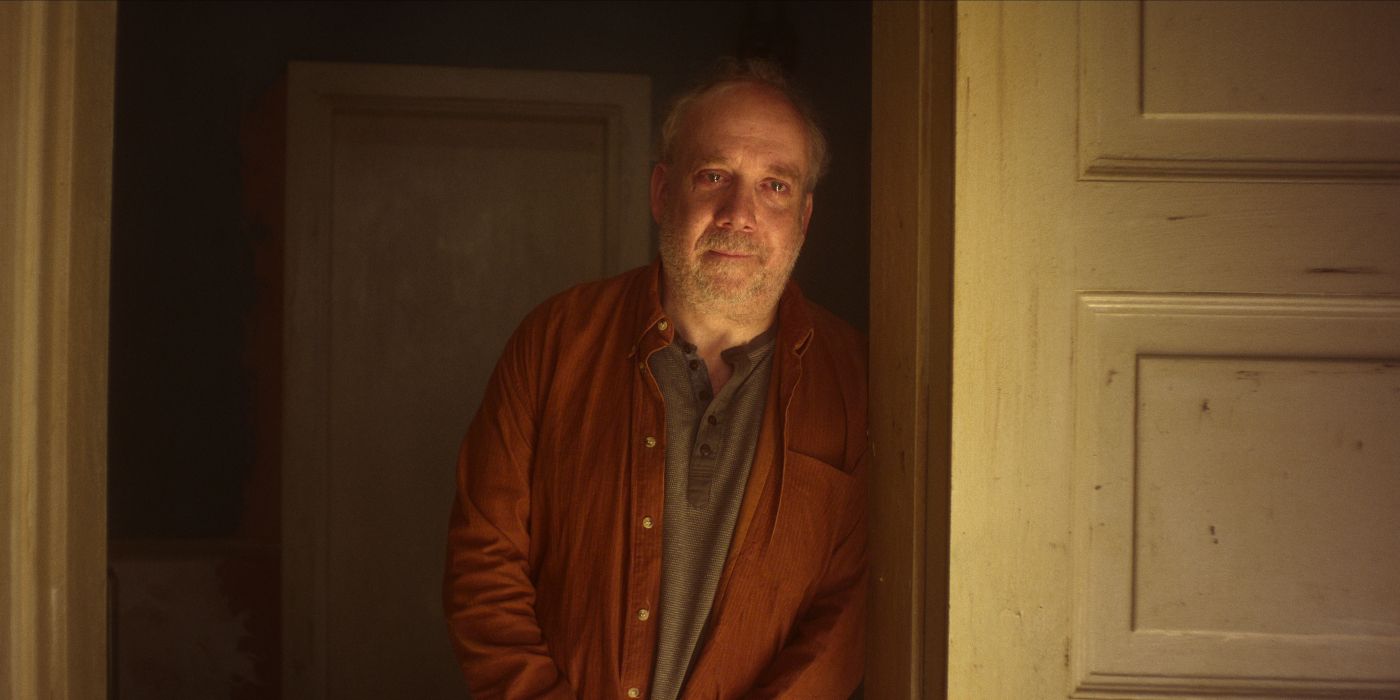Although Black Mirror once seemed like a futuristic warning about how the horrors of technology could be inflicted upon humanity several years into the future, real life has caught up to fiction in startling ways. What’s most chilling about the sci-fi anthology’s latest season is that many of the premises feel not that far removed from reality, as they speak to current issues that are quickly spiraling out of control. Black Mirror has previously addressed some of the fundamental flaws with streaming services, including the one that distributes it, with episodes like “Joan is Awful” and “Loch Henry.” However, “Common People” explores how the escalation of prices and subscription tiers has allowed certain services to weaponize their necessity.
What Is “Common People” About?





“Common People” explores the lives of welder Mike (Chris O’Dowd) and schoolteacher Amanda (Rashida Jones), who have been trying for years to conceive a baby. After Amanda collapses while at work, Mike is informed by Gaynor (Tracee Ellis Ross), a representative from tech startup Rivermind Technologies, that her brain can be saved by surgery that will utilize synthetic tissue to reconstruct the area removed by her tumor. Although the initial surgery is free, Mike learns that he can only maintain Amanda’s mental state if he subscribes to a monthly fee for Rivermind to extend their services. “Common People” looks at a recurring issue with streaming that goes beyond Netflix. It’s not only one of Black Mirror’s most heartbreaking episodes, but one of its most spookily authentic.
“Common People” shows the ease with which streaming services are able to take advantage of a customer base by promoting themselves with an attractive initial offer that appears to be too good to be true. Although saving money on what would have been an expensive surgery means that Amanda and Mike are benefiting in the short term, it also means that they have placed their long-term financial future in the hands of Rivermind, which can tamper with the monthly rates whenever it wants. This is a common tactic used by streamers, in which a free trial or low monthly fee is exponentially raised once subscribers are already hooked on the content. While subscribers may find it difficult to pay more for content that they have taken for granted, it becomes even more challenging for Amanda, as her life depends on whether Mike can pay the required monthly fees.

Giamatti’s soulful, complex performance in “Eulogy” is one of the best of his entire career.
“Common People” also explores the manipulative use of the “tier” subscription system, in which customers are essentially forced to pay higher fees because the quality of their initial plan is slowly eroded. In a clever parody of the way in which some streamers have inserted advertisements for subscribers on their base level, despite initially promising never to do so, Amanda breaks out into pre-ordained marketing speeches at random moments. Mike learns that the only way to prevent this from happening is to pay for the “ad-free” tier, which would expand his benefits; despite being at a price that he is no longer capable of paying on a monthly base, Mike is forced to change his plan, as Amanda will be fired from her job if she does not have control over her impromptu advertising speeches.
“Common People” depicts the truly malicious nature of advertising, as it’s evident that Rivermind has no concern over what products it is promoting; some of the companies Amanda seems to promote are considered untrustworthy or dangerous, which leads others to cast judgment upon her. While there is often backlash against services that display advertisements from companies with contradictory values, these concerns are often dropped for the sake of profit. Mike cannot simply cancel Amanda’s subscription, as to do so would be to doom her to an early death.
‘Black Mirror’ Explores the Inhumanity of Streaming Culture
Mike’s most heartbreaking revelation in “Common People” is that he will never truly be able to “pay off” the services Amanda is getting, and must comply with the demands of Rivermind in order to get her the service she needs. Rivermind has made itself the only viable option for people who desperately need help, and are unable to receive assistance through traditional means; with no time to deal with the legal specifics, they become victims of predatory fine print that allows the company to willfully extort them. The more upsetting consequence is that Mike is forced to pay for his services by turning his body into a commodity, which is seen in the various acts of self-mutilation he commits for the Dum Dummies website.
The risk of an entirely privatized system means that even the best care available is distributed by greedy capitalists, like the ones that own Rivermind, who are only offering their services in pursuit of a financial goal. Since they don’t have any motivation to appease their customers beyond what was outlined in the contract, they do not have any sympathy for the specificity of the situation; Amanda suffers from traumatic feelings whenever she ventures outside of the “zone of coverage” that her plan provides for. Later, she is essentially turned into a shadow of the person she once was, as her bedridden state makes it impossible for her to take any pleasure in life. Although the best of Black Mirror is often science fiction in the metaphorical sense, “Common People” explores its story through the lens of a nightmare that is all too rooted in our own reality.

Giamatti truly shines in “Eulogy,” delivering a performance that is both nuanced and deeply moving. His ability to convey such raw emotion is a testament to his incredible talent. This role stands out as a defining moment in his long and successful career. The film itself benefits greatly from his portrayal, making it a must-watch. What do you think makes this particular performance so unforgettable?